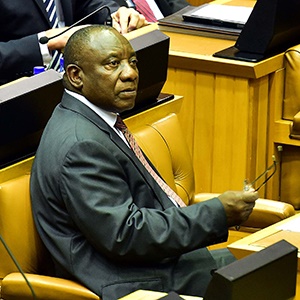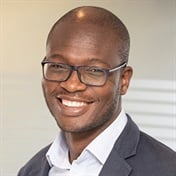
Before President Cyril Ramaphosa took over the highest office in the land, it suffered from the crisis of credibility. His predecessor, Jacob Zuma, had spent a lot of time and energy destroying it.
Zuma had inherited from Thabo Mbeki an office with a high level of respectability and moral credibility. It was not perfect and the incumbent made mistakes that require no enumeration here. But the fact that it had the requisite gravitas is not in dispute.
Mbeki had taken over from the larger-than-life Nelson Mandela who laid the foundation and set the standards. It took Zuma eight years to destroy what Mandela and Mbeki had created in nearly 15 years.
Mandela's presidency was about reconciliation, national building and completing the Constitution-making process. It was an imperative imposed on his presidency by the demands of a fragile nation at the time. Mbeki's presidency was about the nuts and bolts of state craft, fixing the public finances left in shambles by the National Party and hoisting South Africa's flag higher in global affairs. Zuma showed not even the pretence of lofty ideals. For him public office was about personal survival.
Zuma's downgrading of the office in almost all respects made the challenge of his successor look easy on the face of it. Ramaphosa's main objective was from the outset the restoration of the moral authority of the office of the president. He also needed to inject into the Presidency his own vision.
By merely being in the office, Ramaphosa restored its credibility. The so-called Ramaphoria or Rama-euphoria – a colloquial reference to the resurgence of positive sentiment about the country under its new leader – is a reference to Ramaphosa's mere presence in the office.
But it was always going to be what he would say and do next that would indicate the substance of his leadership style as he confronted governance collapse head-on. In his first key speeches – the State of the Nation Address, the ANC January 8 statement, his Freedom Day message and the Presidency budget vote – he has set out his immediate priorities. The interrelated themes are good governance, rooting out corruption, restoring trust in government and rebuilding the economy to create jobs.
The collapse of basic governance in all major sites of state authority: national Cabinet, some national departments, state-owned companies, and many provinces and municipalities dictated that he needed to focus on emergency tactical manoeuvres to restore normality. He has set the right tone and has moved fast to flush out some, but not all, elements of state capture and to rehabilitate governance.
Developing a long-term plan
But responding to the urgency of the situation, however necessary, is not the same as presenting a long-term strategy. Most of the governance problems can be fixed through a long-term strategy, executed by capable officials.
What could be discerned from his speeches and actions so far is that he has the right heart and mindset. This will only carry him up to a point. The problems are too deep to be solved by a declaration of good intent. Yet, citizens want action now.
He has moved fast to cast his presidency clearly as one that will primarily focus on the economy, an area that has always been assumed to be his strength because of his experience and exposure in the world of business. It's a well-chosen focus that is relevant to the challenges of unemployment, poverty and inequality.
What appears to be his short-term measures to deal with the challenges of the moment could be used as precursor or key aspects of a long-term strategy that he hasn't got but is seemingly developing.
Take for example his inquiry into SARS, his planned investment and jobs summit – all these will give him a good idea of what he needs to do in the short-term and in the long run.
Getting other sectors to participate in finding solutions to the country's problems is good, not only because he stands to benefit from the insight of others, but also because the successes and/or failures can be shared.
His decision to create a presidential council of state-owned companies composed of ministers and private sector leaders is good as it will ensure that, at the highest level, government leaders get insights from people who know how companies work, the people who keep the economy going.
Getting others around the table must not absolve him from the responsibility to devise uniquely Ramaphosa solutions into all the processes he has initiated. The level of desperation in the country among the poor who need jobs and the middle classes who see their incomes squeezed by rising rates and taxes is too high. Confounding this is the general decline of key state services.
For a very long time South Africans were fed rhetoric that was consistently at odds with the actions of politicians. Ramaphosa has so far said mostly the right things. That's the easiest part of his job. The difficult part is make things happen. The lies that people have been fed while watching politicians and their friends line their pockets have created a great deal of cynicism about our politics and is among the causes of instability in many communities around the country.
Ramaphosa needs to demonstrate that he understands people's concerns. People want him to make miracles happen and fix the country now. They have been waiting for Godot the last eight years. They must not be made to wait for "thuma mina" while they are told things will be fine in the long run. In the long run, as the economist John Maynard Keynes once put it, we'll all be dead.
- Mkhabela is a political analyst with the Department of Political Sciences at the University of South Africa.
Disclaimer: News24 encourages freedom of speech and the expression of diverse views. The views of columnists published on News24 are therefore their own and do not necessarily represent the views of News24.




 Publications
Publications
 Partners
Partners























